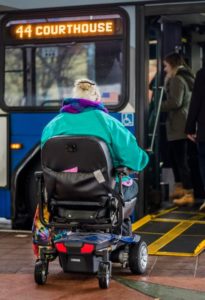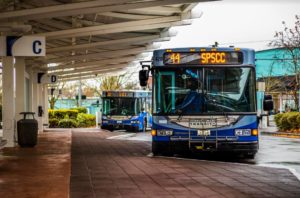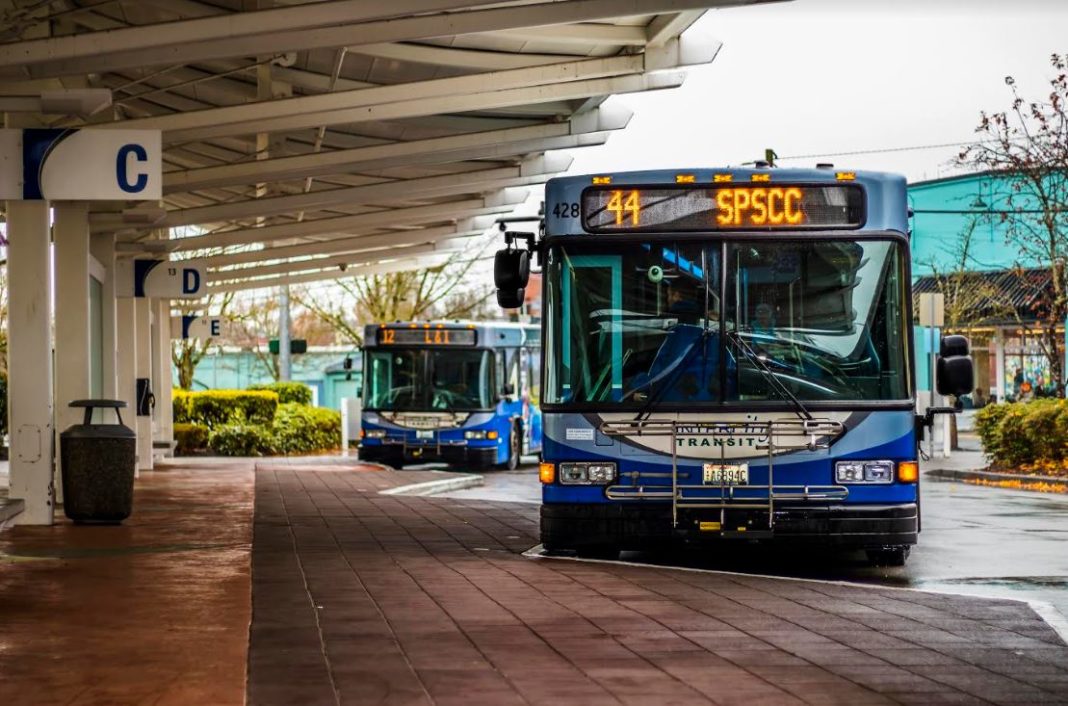On the ballot this November is a public transit measure called Intercity Transit (IT) Proposition 1 which would expand and improve transit services in our community. The measure is the result of a two-year public engagement effort, called “IT Road Trip”, which collected over 10,000 suggestions and turned them into a plan for the future of public transportation. Intercity Transit Proposition 1 would fund the community’s expectations for public transit.

Photo courtesy: Intercity Transit
During IT Road Trip, the community identified the importance of ensuring transit service for the elderly, students, low-income, and individuals living with disabilities. They expressed the need to provide service in unserved and underserved areas of the community, and ensure people have an efficient way to get to work, school, and services. They also recognized the important role public transportation plays in addressing population growth, economic development, increased traffic congestion, and reducing pollution.
Other community-defined priorities included starting service earlier, ending later and providing more service on the weekends to address a broader spectrum of required work hours, particularly for those with entry level, retail and service industry jobs. These extended hours also benefit students, those needing to get to medical appointments and other commitments throughout the day, as well as people wanting to take transit to community events and festivals. Community priorities also include moving people to their destinations faster, with more frequent options, both locally and up the I-5 corridor.
If Intercity Transit Proposition 1 passes, the agency will expand its hours of operation, increase frequency, and add bus and Dial-A-Lift services in Lacey, Olympia, Tumwater, and Yelm. It will also allow the agency to avoid a 15 percent cut to existing services.
A significant reduction in federal grants, which previously funded 80 percent of the cost to purchase buses, has left the agency without the resources to buy new vehicles. The current level of local funding is not enough to replace those lost federal dollars and does not provide resources to replace buses.

Photo courtesy: Intercity Transit
“We are operating over 400 vehicles in our original 34-year-old facility that was built to support 80 vehicles. Our talented maintenance staff have kept buses with a service life of 12 years running for 15 years. We’ve streamlined processes and implemented new cost-saving technologies, but it’s not enough to off-set the reduction in federal funding,” said Intercity Transit General Manager, Ann Freeman-Manzanares.
People who live within the service area, which includes Lacey, Olympia, Tumwater, Yelm, and their surrounding urban growth areas, will get to decide whether or not these community-identified service priorities will be funded when they vote on Intercity Transit Proposition 1. The measure proposes a four-tenths of 1 percent sales tax increase, or 4 cents on a $10 taxable purchase, to improve and expand public transportation services. This would cost the average household between $2 and $5 per month, depending on spending habits. If Proposition 1 is rejected, Intercity Transit will need to cut services by 15 percent that is roughly equivalent to eliminating all Saturday and Sunday service.
To learn more, visit the Intercity Transit Proposition 1 webpage.
Sponsored




















































